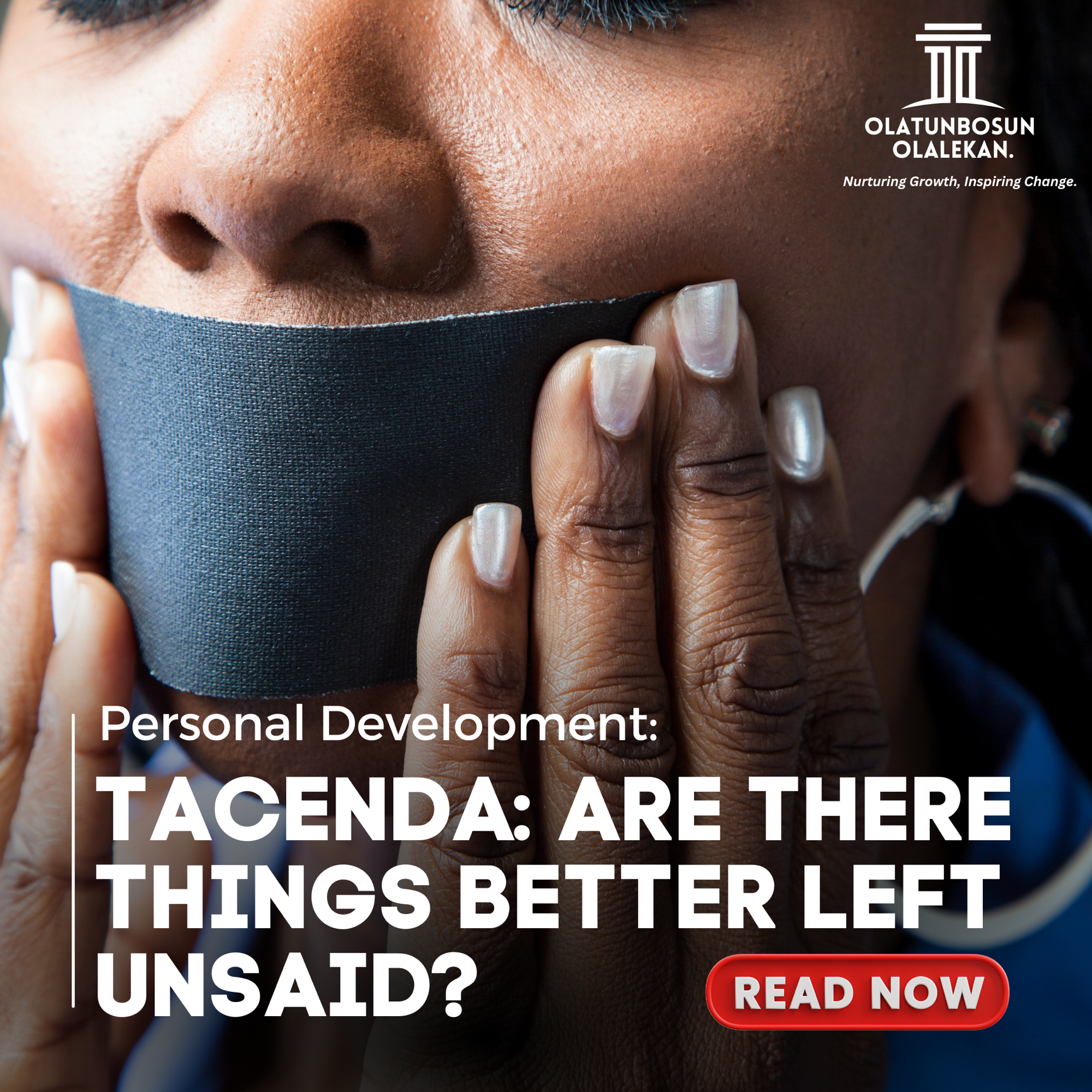The word “tacenda” is Latin, meaning “things better left unsaid.” It describes those moments or details that might be better left unvoiced either for the sake of peace, for someone’s privacy, or simply out of respect. It is understandable, in this age of transparency and openness regarding communication, if one questions whether holding back anything works against the concept of honesty and authenticity. But truth, as powerful as it is, not every truth is edifying to say, and there are words that are better unsaid. In opening this discussion of tacenda, the question perhaps should be: Is there anything that, for the sake of our relationships and our souls, is better unsaid?
The explanation lies in the purpose of our words. Communication encompasses not only the expression of thoughts but also the building of understanding and rapport. Not every thought that comes into our heads serves these purposes. Sometimes our uncensored, raw thoughts can do more harm than good, especially if those feelings are emotionally hot or inopportune. For instance, one impulsive comment might spark an argument that otherwise would have been avoided. Practicing tacenda in those moments means speaking only when words would add something worthwhile and constructive. This is not a question of dishonesty, but rather making room for wholesome interaction by filtering out what would serve only to cause discord.
The concept of tacenda will also apply to our personal lives and even the inner thoughts that sometimes are in conflict within us and that may be unresolved or emotionally complex. While sharing is therapeutic, that doesn’t mean that all turmoil must be unleashed upon those around you. Some experiences and hurdles demand introspection-a private journey toward clarity. It would be premature to let those things out in the open when such disclosures may lead to misunderstanding or groundless concern from others. Knowing when to hold something inside gives us the space to sort through our internal feeling without a pronouncement, and perhaps make a decision about whether to share, really serves the purpose and helps others.
This restraint, then, can be a further test of maturity. A reaction is always so much easier-quite often, that is-when we feel wronged or misunderstood. But maturity teaches us that not every moment calls for a response, and not every situation requires confrontation. Tacenda reminds us to consider the impact of our words before they leave our lips, weighing whether they will contribute toward peace or only add fuel to the fire of controversy. It is not a matter of bottling up emotions but rather responding in ways that are consistent with our deeper values and long-term goals, rather than immediate satisfaction associated with saying what’s on our minds.
Knowing when to apply tacenda in relationships can protect both trust and harmony. Sometimes very importantly, partners needn’t say every criticism or historical hurt when those things don’t add any worth to the future of the relationship. Holding back does not mean feigning happiness; rather, it involves being more mindful of how much we choose to reveal at a particular time. Where impulsive speech might otherwise cut short the relationship, the decision for silence allows a relationship to take root in courtesy, rather than in battles that only serve to bring down trust. Tacenda reminds us that in these instances, silence is not a weakness, but one that gives the strength to build something enduring.
In professional milieus, too, is a place for tacenda. Sometimes we may have observations or criticisms that, if blurting them out, would hurt feelings of coworkers or supervisors. While feedback is necessary in a healthy workplace, not every critique must be spoken at the moment nor necessarily in its entirety. Knowing when to remain silent and when to speak can be the skill that generates respect and cooperation, rather than conflict. The principle of tacenda helps us to be stingy with our selection of battles and to ensure that we speak only when our words truly will improve the situation, rather than simply airing personal frustrations.
Yet, it’s important to find balance. While tacenda teaches the value of silence, that doesn’t mean not speaking of those essential truths or shying away from hard conversations. Sometimes, things are required to be said, and the only way forward is by opening up. For instance, in relationships, honesty about vital issues is central to building trust. Tacenda is not about silence at all costs; rather, it is the wisdom of knowing when words will uplift and when they will divide. By learning to apply tacenda thoughtfully, we will be in a better position to ensure that our silences are informed by respect and understanding, rather than fear or avoidance.
Ultimately, the notion of tacenda reminds us that words have deep power and that with power comes responsibility. Not everything we think or feel requires an audience, and in choosing to be silent where warranted, inner peace is cultivated. This does not mean repression in self-expression, but self-restriction from considering the consequences that come with words spoken. Tacenda is an art of selective communication-skill that, when mastered, can further bring harmony into one’s life and preserve the peace and respect which enable relationships to flourish.
In a world often encouraging one to “speak their truth” no matter the cost, tacenda reminds us that there’s often a good sense in silence. More often than not, what we don’t say is as powerful as what we do. We acquire through practice the insight to realize that even our silence is talking volumes for our respect, maturity, and the wisdom to know when to let go. After all, it is not what we say but what we do not say, and in silence lies some still strength.
Thank you for reading.
Your comments are appreciated






